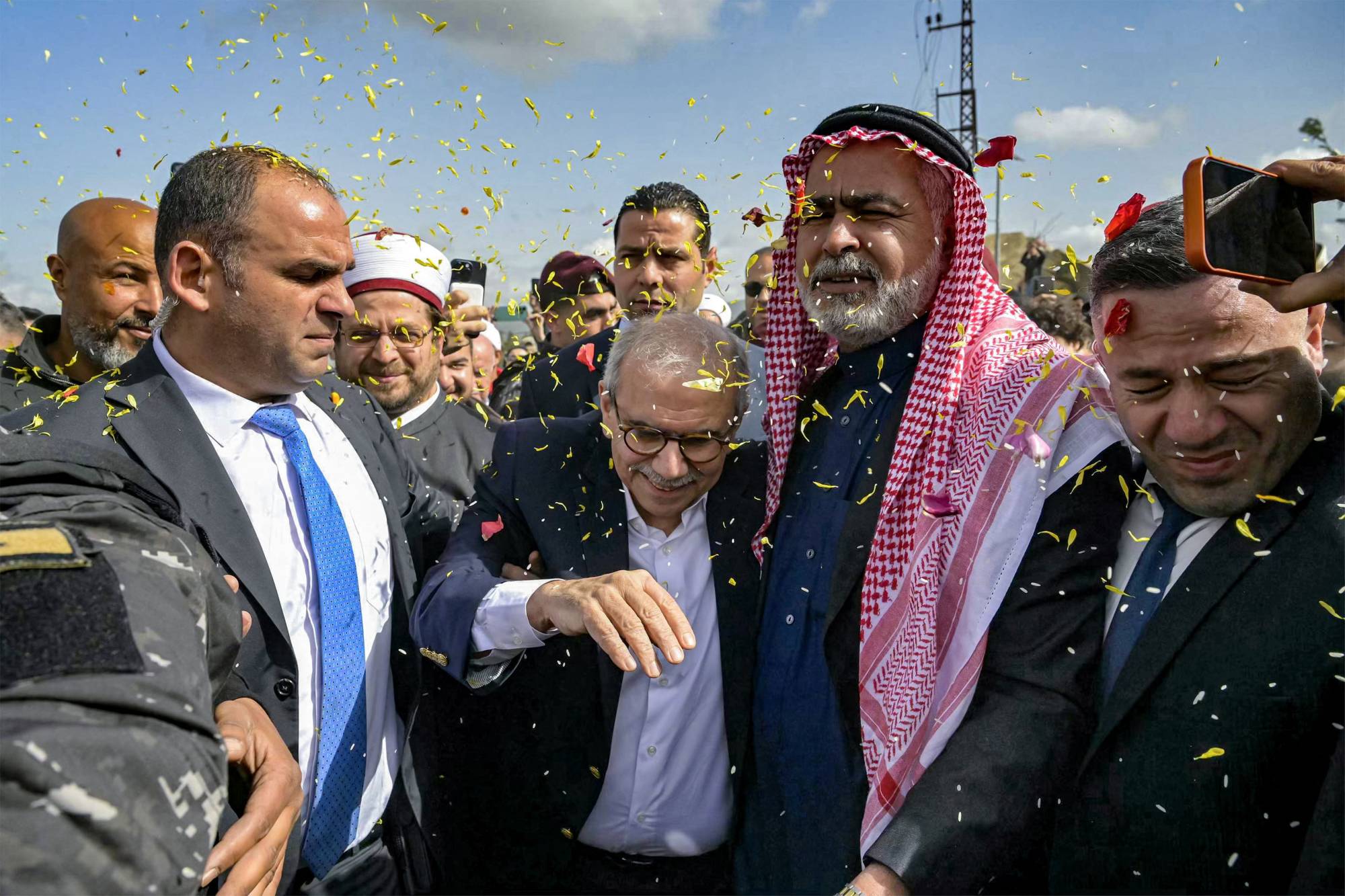The so-called Iraqi Resistance Coordination Committee issued Saturday an ultimatum to the government of Prime Minister Muhammad Shiaa al-Sudani, demanding immediate action against “US violations” in the country.
Meanwhile, the US ambassador to Iraq, Alina Romanowski, continues to praise the cooperation between her country and the Iraqi government at all levels.
The Coordination Committee, which consists of four Shiite groups affiliated with Iran, expressed its “unwavering commitment to prioritizing the interests of the Iraqi people, particularly in light of the significant political, security, and economic challenges facing the nation.”
In a statement, the committee said that in a show of commitment, it had temporarily suspended its military operations against the US military presence within Iraq.
However, “this temporary halt should not be misconstrued as acceptance of the ongoing presence of US forces, which we consider illegal and unconstitutional,” the statement noted.
The Committee then condemned what it perceived as US “interference” in Iraqi affairs, Washington’s flagrant violations of Iraqi sovereignty, and the detrimental effects of the continued presence of US military bases, combat forces, and military aviation in Iraq. Additionally, they accused the US embassy of spreading vice, moral deviation and undermining the Iraqi cultural identity.
It also expressed concern over alleged attempts to manipulate Iraqi rights and deprive the population of essential services, notably electricity.
Accordingly, the Committee said it grants the Iraqi government a final opportunity to address the violations. They clarified that their patience is not infinite and warned that failure to heed their demands would result in a reaction.
Sources close to Iraqi armed factions that oppose the US presence had earlier reported that Romanowski informed some political parties that “Washington may target some Iraqi leaders, mainly the leader of Harakat al-Nujaba (HAN), Akram al-Kabi, who threatens US interests.”
Al-Kabi had repeatedly criticized the United States. His views contradict the positions announced by the “Coordination Framework” Shiite bloc that leads the current government in Iraq, and which seeks to strengthen its foreign relations with countries of the world, including the US, on the basis of common interests.
In 2009, Washington and then government of PM Nouri Al-Maliki signed the Strategic Framework Agreement to formalize a relationship of friendship and cooperation "between the two countries in the economic, diplomatic, cultural, and security fields. In a meeting held lately with Maliki, Romanowski announced her country’s hopes to strengthen the agreement.
Meanwhile, it remains unclear whether the US ambassador informed Iraqi politicians of her country's intention to target a faction leader, a task outside the scope of her mission as ambassador.
But since assuming her post in Iraq more than a year ago, Romanowski had focused on the principle of developing relations between Baghdad and Washington. She intensified her meetings with various Iraqi officials, including the Prime Minister, whom she met several times. Several Iraqi officials criticized her “abnormal movements”' including two meetings the ambassador held with former Prime Minister Nouri al-Maliki in less than two months.
After their last meeting held a few days ago, al-Maliki confirmed he discussed with the US ambassador political and security developments in the country and the region, as well as cooperation between the two countries at the political, economic, and cultural levels.
Al-Maliki also confirmed that Iraq is preparing to complete its reconstruction process after the budget bill approval, stressing the need to exert efforts to enhance political and economic stability in the country according to a comprehensive vision.
The leader of the State of Law Coalition also emphasized the importance of carrying out projects in the health and housing sectors and supporting foreign investments, especially those of American companies, according to the Strategic Framework Agreement signed between Baghdad and Washington.










